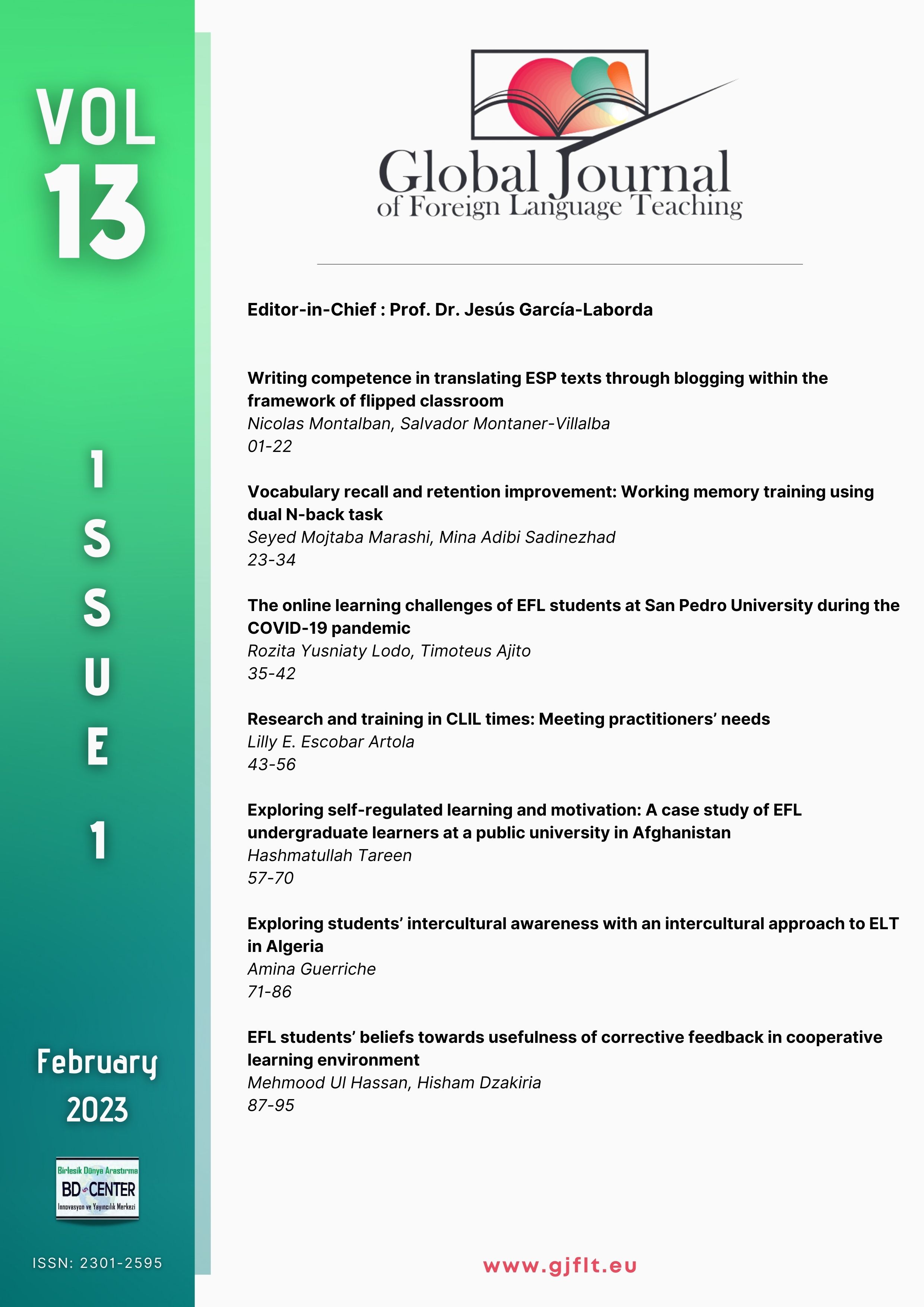Writing competence in translating ESP texts through blogging within the framework of flipped classroom
Main Article Content
Abstract
In this paper, we aim to verify whether Flipped Classroom and blogging promote writing competence in specialized English. In order to do this, we implemented an experiment with learners from the Specialized Translation (English) course, in the 4th academic year of the BA in Translation and Interpretation during the year 2019-2020. This didactic experience consisted of the creation of a blog by learners with their tasks, which consisted of some translations from English into Spanish and text composition in English. To assess this experience, two questionnaires were made: a diagnostic survey to ascertain learners’ knowledge related to the acquisition of written competence in English through blogging within the framework of Flipped Classroom, and a final survey to analyze the progress. Moreover, quality research was done on the English-Spanish translation, which was used within the process of teaching writing competence in English through evaluation metrics, such as Precision, Recall, WER and BLEU. Finally, texts produced through Coh-Metrix tool and learners’ co-evaluation were studied to analyze the quality of the texts in English.
Downloads
Article Details

This work is licensed under a Creative Commons Attribution-NonCommercial-NoDerivatives 4.0 International License.
Authors who publish with this journal agree to the following terms:- Authors retain copyright and grant the journal right of first publication with the work simultaneously licensed under a Creative Commons Attribution License that allows others to share the work with an acknowledgement of the work's authorship and initial publication in this journal.
- Authors are able to enter into separate, additional contractual arrangements for the non-exclusive distribution of the journal's published version of the work (e.g., post it to an institutional repository or publish it in a book), with an acknowledgement of its initial publication in this journal.
- Authors are permitted and encouraged to post their work online (e.g., in institutional repositories or on their website) prior to and during the submission process, as it can lead to productive exchanges, as well as earlier and greater citation of published work (SeeThe Effect of Open Access).
